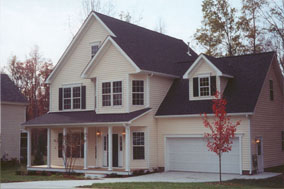Modular homes in Hampton Roads are a modern alternative to traditional on-site construction. The initial construction work is done in an off-site, environment-controlled factory. They offer a more cost-effective and time-convenient approach of building your dream house. Although its main pieces are hauled from the factory by truck, custom-built modular homes are not mobile homes....
Read MoreModular Homes VA Blog
If you are still deciding whether to choose modular home construction in Virginia Beach, VA, here is something to help you come up with the right decision. Apart from the fact that modular houses are cost-effective, time-convenient, and high quality, they also provide homeowners a venue for building or remodeling homes. Since they are custom-built...
Read MoreCustom-built modular homes are now gaining popularity in Virginia Beach, VA. But it is important that the obligations of both modular homeowners and local home builders must be discussed precisely. So that when anything goes wrong during, or even after, construction, the problem could be easily dealt with accordingly. The warranties pertaining to modular homes...
Read MoreModular homes make it easy for property owners to build a new home. Modular construction provides quality craftsmanship and durability through streamlined factory style processes. In fact, modular construction makes building a new home is as stress-free as possible. Modular homes offer several advantages over traditional construction. The majority of the home is assembled in...
Read MoreThe real estate market has gone up and down over the last few years. New home construction offers you various options. If you are in the market to build a new home this spring, consider modular homes. Energy efficiency, shorter construction time and high return on investment are just some of the benefits of modular...
Read MoreModular homes can be an affordable and timelier alternative for people on a tighter budget. Modular homes are built in large sections in a factory, then delivered and assembled quickly at the construction site. You can have your new house in weeks rather than months. Because of the time savings and the efficiencies of constructing...
Read MoreIf you are interested in building a new home, you can now be environmentally responsible by building a modular home. Modular Homes from Tidewater Custom Modular Homes are actually built with a green initiative in mind. This includes construction of the panels to the overall energy efficiency of the home once it is finished. Many...
Read MoreVirginia has some fantastic locations for a log home. But log home packages are very expensive and very time consuming to build. That does not mean you have to give up your dream of building one. Modular construction combines the craftsmanship and aesthetics of a log cabin with modern construction technology to give you a...
Read MoreModular homes can be an alternative for people who want to move but cannot find a home to suit their needs. The modular construction process builds homes in parts, or modules, indoors in a factory setting. They are then delivered and assembled quickly at the construction site. You can have your new house in weeks...
Read MoreMany homeowners are deciding to build their new home, rather than buy an existing home. Building a new home allows you to custom design your home to meet the needs of your family. However, if there is one drawback to new home construction it is the length of time to build. But, you don’t have...
Read More


